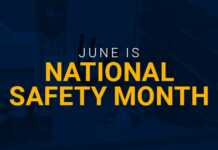This standard protects workers who can reasonably be anticipated to come into contact with blood or OPIM (Other Potentially Infectious Material) as a result of doing their job duties. Who falls under reasonably anticipated you ask? It encompasses any employee who as part of their scope of work has an anticipated exposure. This can include housekeepers, maids, plumbers and residential maintenance personnel.
What are the employers’ requirements for establishing a program if they have employees with anticipated exposures?
- Establish an exposure control plan, this is a written plan to eliminate or minimize occupational exposure.
- Update the plan annually to reflect changes in tasks, procedures, and positions that affect occupational exposure, and also technological changes that eliminate or reduce occupational exposure.
- Implement the use of universal precautions (treating all human blood and OPIM as if known to be infectious for bloodborne pathogens).
- Identify and use engineering controls. These are devices that isolate or remove the bloodborne pathogens hazard from the workplace.
- Identify and ensure the use of work practice controls. Provide personal protective equipment (PPE), such as gloves, gowns, eye protection, and masks. Employers must clean, repair, and replace this equipment as needed.
- Make Hepatitis B vaccinations available to all workers with an occupational exposure. This vaccination must be offered after the worker has received the required bloodborne pathogens training and within 10 days of initial assignment to a job with an occupational exposure.
- Make available post-exposure evaluation and follow-up to any occupationally exposed worker who experiences an exposure incident.
- Use labels and signs to communicate hazards.
- Provide information and training to workers.
- Maintain worker medical and training records.
Sources:
Bloodborne Pathogens. osha.gov. U.S. Department of Labor, Occupational Safety and Health Administration, 3 April 2012. Web. 31 December 2013.

















